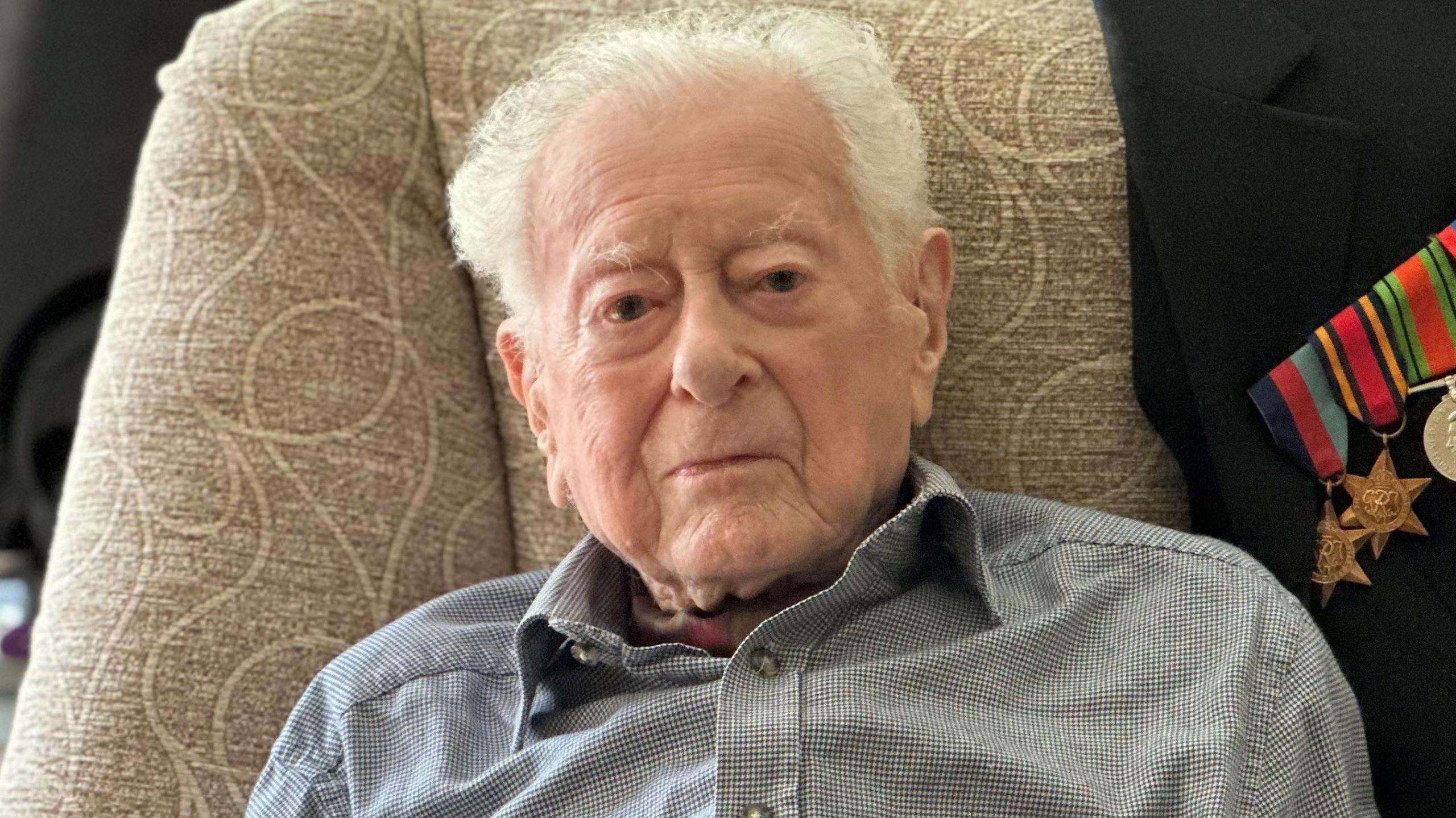Veteran at 19: VJ Day memories of an enemy who 'fought to the death'
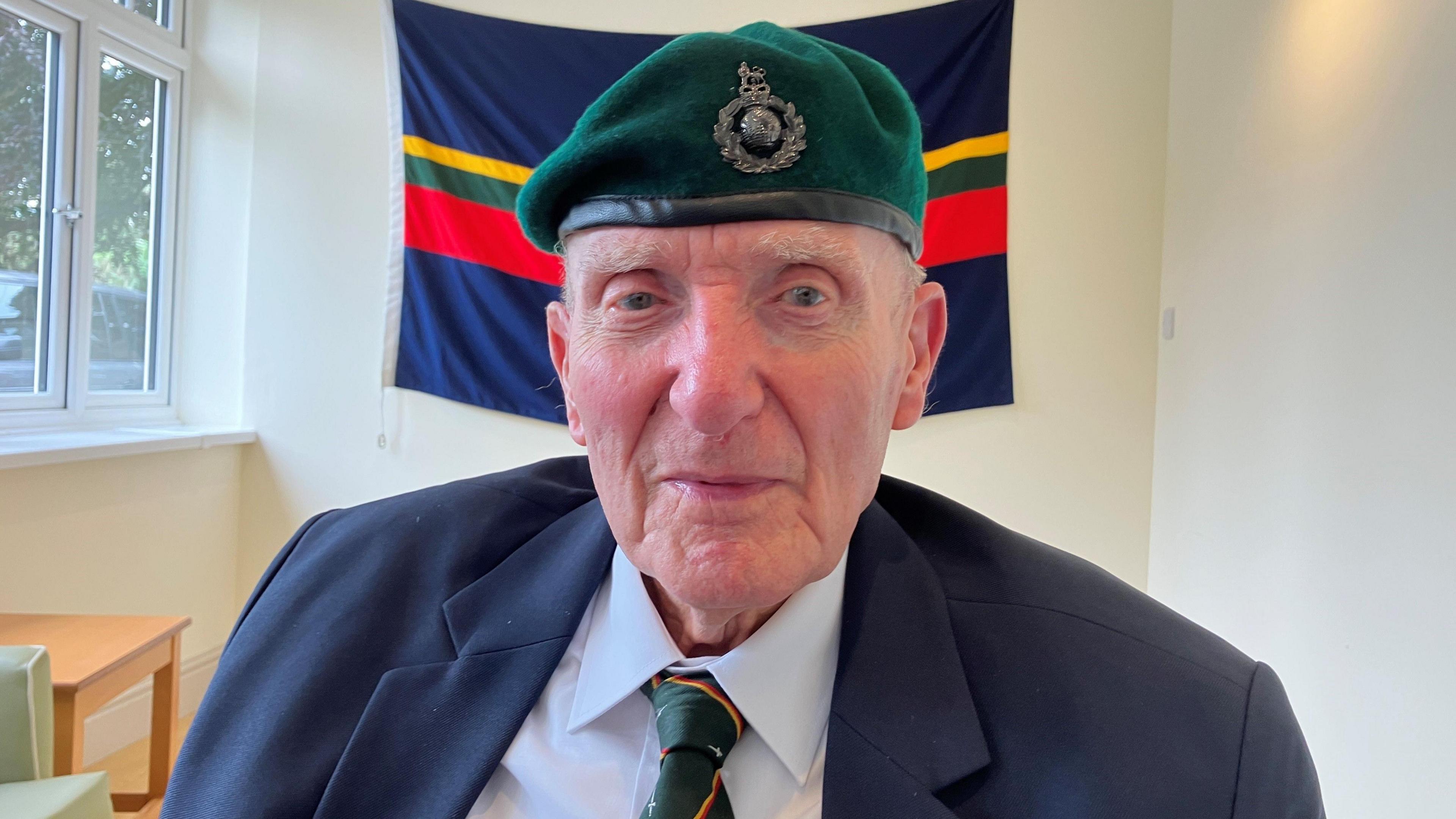
Tony Noakes joined up at the age of 17 and was quickly shipped off to east Asia
- Published
Having joined up at 17, Tony Noakes then had to learn how to fight and survive a war against both the Japanese army and gruelling conditions in the jungles of Asia.
Like many veterans, the 99-year-old is reluctant to go into too much detail of what he experienced during World War Two but, amid the heat, humidity, tiring marches and the ever-present threat of disease, he can recall his mission very clearly.
"You moved along… and either shot the Japanese, or took them prisoners," he said.
But, often, "they fought to the death", he added.
Mr Noakes, who was visited by Royal Marines at his care home in Northumberland to mark the 80th anniversary of Victory over Japan (VJ) Day, was part of 42 Commando unit sent to the war in the East.
He was a lorry driver's mate in London in 1943, but set his heart on joining the war effort to follow in his father's footsteps.
"My dad was a marine in the First World War so I just followed on. I went down to Chatham and never looked back."
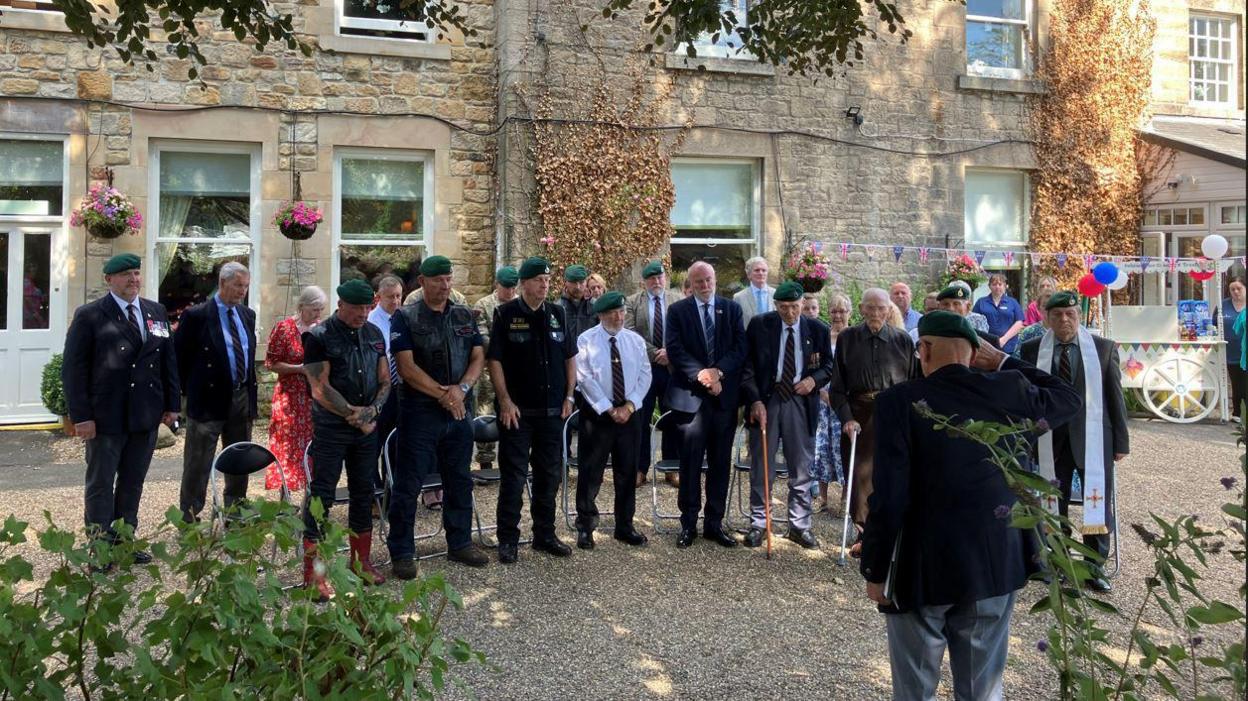
Members of the Royal Marines visited Mr Noakes to mark the two-minute silence for VJ Day
After intense training in Scotland, Mr Noakes and his comrades in 42 Commando unit only discovered they were destined for Asia as they drew tropical kit at the Quartermaster's stores.
"You suddenly found yourself on a troopship, going through the Mediterranean and heading for Suez. Morale? Keen as mustard," he recalls.
As elite troops, his unit would have expected to be in the thick of the fighting against the Japanese.
Their forces had swept west across Burma (now Myanmar) and Malaya (now West Malaysia).
Mr Noakes, as part of 42 Commando, was involved in the fierce fighting to push them out of both countries, including a series of amphibious landings on the Burmese coastline.
Like all the men of the 14th Army, they faced two adversaries - the Japanese and the jungle.
Fighting 'on aspirins'
Malaria, dysentery, hepatitis and dengue fever - to name a few of the prevalent diseases - caused more casualties than enemy bullets.
"It was bloody awful," Mr Noakes said.
"There were a lot taken down by sickness. You soldiered on, on aspirins and things like that."
At the war's end, there was no quick demobilisation for the young veteran, still only 19.
After further dangerous missions in the Middle and Far East, he was chosen to be the man who symbolically lowered the union flag at the end of the British mandate in Palestine in 1948.
Back home, he built a 30-year career as a police officer in what are now the Durham and Cleveland police force areas, rising to chief inspector.
His son John said of his father's war service: "There was hand-to-hand fighting.
"Dad's resolve, fitness and determination to survive through those times is beyond comprehension today.
"I would like people just to spend a few moments to think about what that meant for the future of our world, in the hope that we never see such conflicts again."
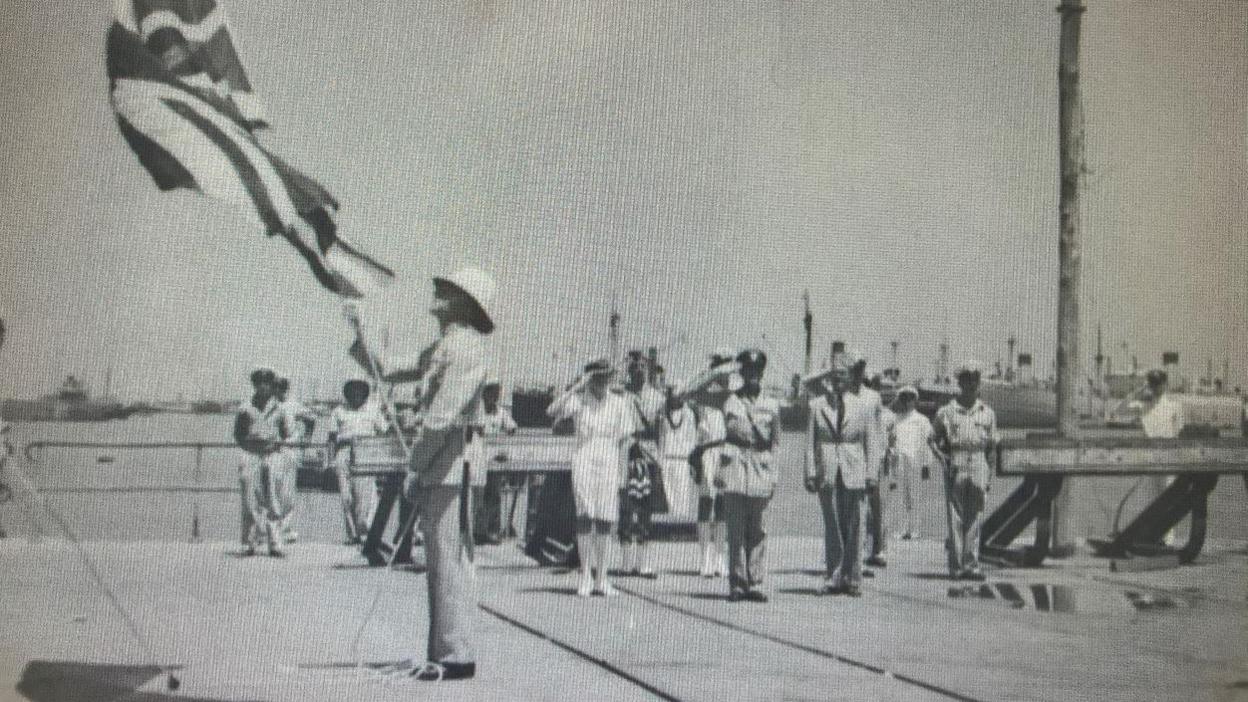
Tony Noakes lowered the union flag at the end of the British mandate in Palestine 1948
As for Tony Noakes, on VJ Day 2025 he said: "All the death and destruction. The misery.
"I did my bit, but a lot of the poor buggers are lying under the ground. I think it's important to keep their memories.
"There should be a day to remind everybody."
Follow BBC North East on X, external, Facebook, external, Nextdoor and Instagram, external.
Get in touch
Do you have a story suggestion for BBC Tyne?
Related topics
Related stories
- Published15 August
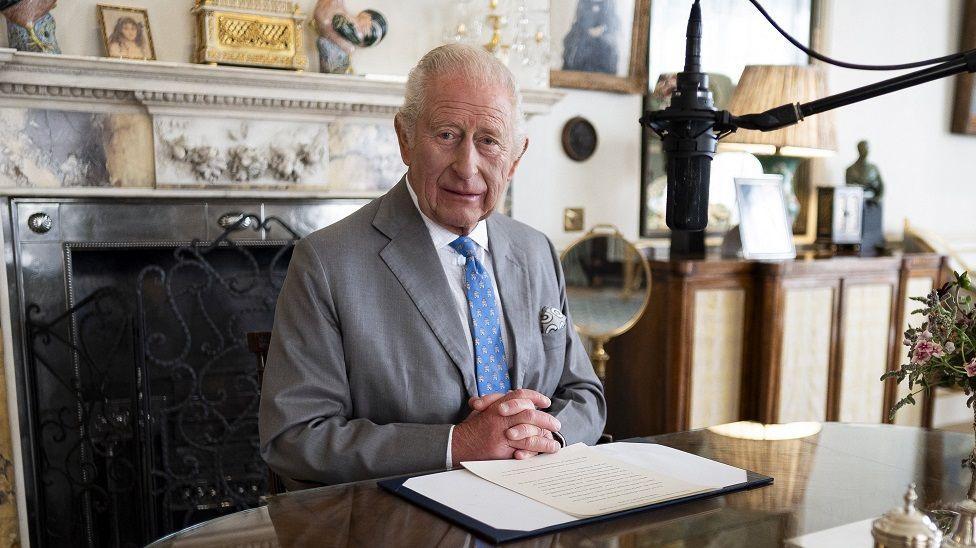
- Published15 August
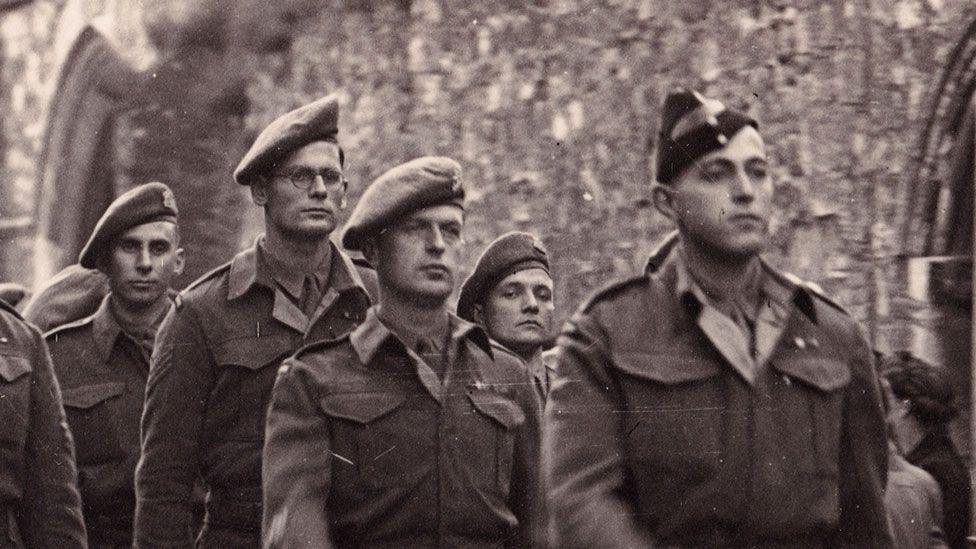
- Published15 August
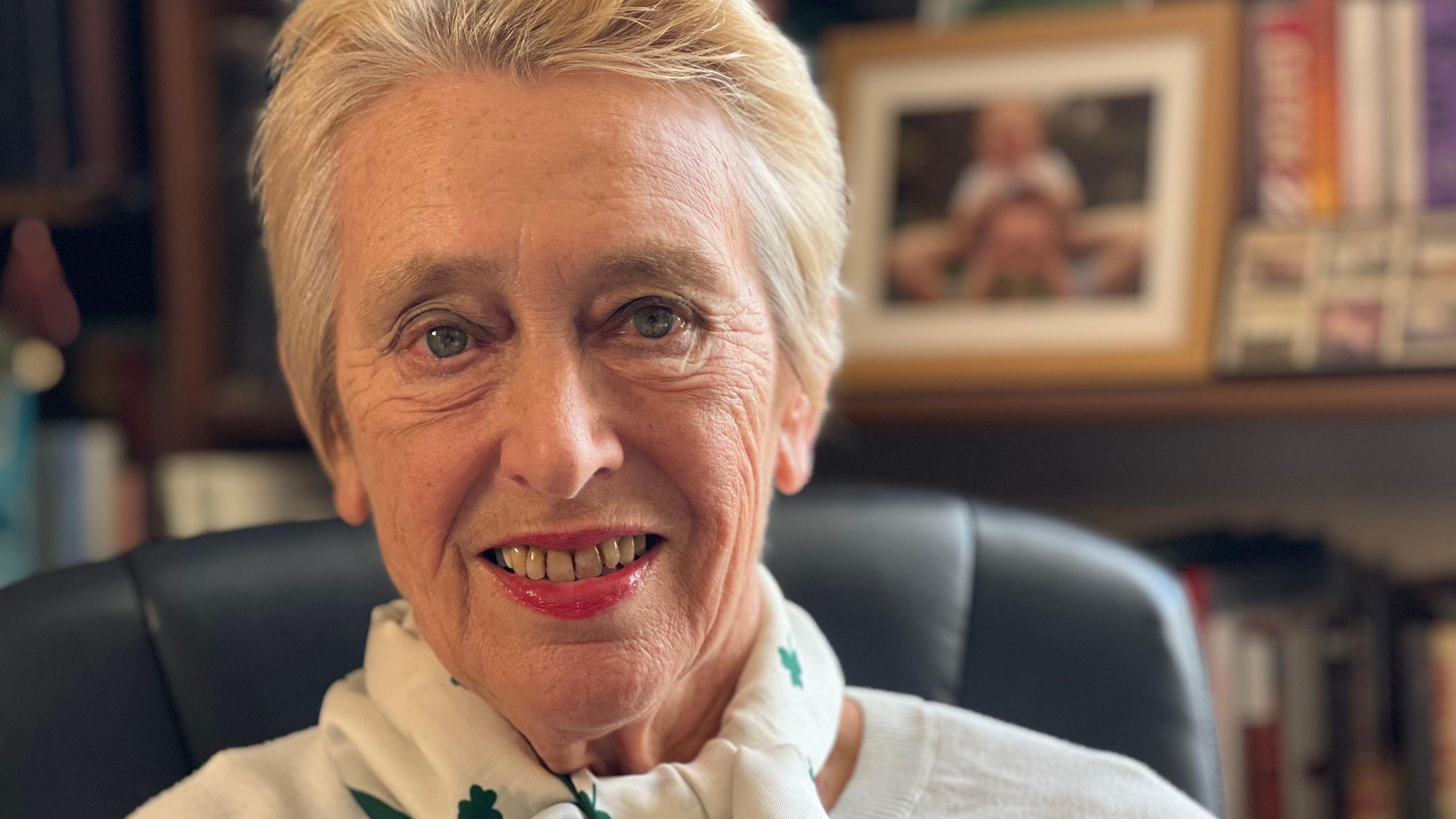
- Published15 August
